Fritextsökning
Artiklar per år
Innehållstyper
-

AstraZeneca moves to brewery quarters in central Copenhagen
AstraZeneca in Denmark is moving its business into central Copenhagen and the old brewery quarters in Carlsberg Byen.
-
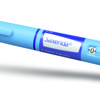
Nanexa develops depot formulation of the diabetes and obesity drug Saxenda
Uppsala-based company Nanexa has signed an agreement with a German contract research company to start a clinical study with a monthly depot of liraglutide. The drug is currently approved for the treatment of diabetes and obesity.
-
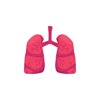
Nanoparticles to help detect pulmonary disease
Nanoparticles behave in a certain way in the air. Using this knowledge, researchers at Lund University have developed a new measurement method for lung examinations based on the phenomenon.
-

Nya life science-lokaler skapas i Hagastaden
Storsatsningen på lokaler för life science-företag fortsätter. Fysiologen i Hagastaden är ett av de senaste projekten, byggnaden genomgår nu en helrenovering.
-

Rapid developments in AI – “All stakeholders are struggling to understand it”
Artificial intelligence is being discussed more and more, and developments in the field are moving rapidly. As the Swedish Medical Products Agency testifies, keeping up with developments is not easy.
-

Egetis lägger ned buddiskussionerna
Svenska läkemedelsutvecklaren Egetis Therapeutics har gått ut med att diskussionerna om ett potentiellt förvärv av företaget nu har lagts ner.
-

Norwegian company wins bidding battle for Sensidose
The lengthy battle to acquire medical device company Sensidose is apparently over. Generic medicines company EQL Pharma is pulling out, selling its shares and leaving the way open for Norwegian company Navamedic.
-

Anna Törner: Minuten mellan liv och död
”Jag har aldrig berättat för någon enda om den här dagen för mer än 20 år sedan. Men jag tänker ibland på vad som hände, på vad som kunde ha hänt. När jag försöker förstå varför jag inte berättat för någon landar jag i känslan skam. Det finns liksom ingen förlåtelse för något som detta, även om det är högst mänskligt att distraheras ett ögonblick”, skriver Anna Törner i en krönika.
-

Samuel Lagercrantz: The government’s performance in healthcare and life sciences so far
Since the change of government in Sweden, developments in the healthcare sector have shown promising signs, but the outlook in life sciences is less promising, writes Samuel Lagercrantz in an editorial.
-
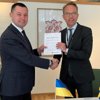
Swedish and Ukrainian Medical Product Agencies sign an agreement
The Directors-General of the Swedish and Ukrainian Medical Products Agencies have signed a cooperation agreement.
-
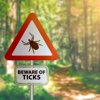
The first Lyme disease vaccine faces a delay
Pfizer and Valneva’s Lyme disease vaccine, which could be the first of its kind, is facing delays of about a year. The reason is problems at trial sites in the United States, which have forced the companies to drop half of the participants in an ongoing Phase III study.
-
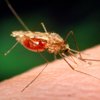
A new malaria vaccine offers hope but much more research is still needed
There has long been no vaccine against malaria, but there have been breakthroughs in recent years. However, it is still unclear how we become immune to the malaria parasite, and this is a vital piece of the puzzle for creating effective vaccines, says malaria researcher Kristina Persson.
-

Study: Chat GPT is more empathetic than doctors
The AI tool Chat GPT is not only more accurate when it comes to answering patient questions – the chatbot is also perceived as almost 10 times more empathetic than real doctors, a new study reveals.
-
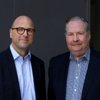
Looking for greater Nordic cooperation – “We have Norway and Finland in our sights”
How can Medicon Valley Alliance bring the big pharmaceutical companies back to the organisation? Life Science Sweden discussed this topic and others with the cluster organisation’s new radar pair.
-
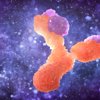
Antikroppar tog form med hjälp av artificiell intelligens
Språkmodeller, såsom Chat GPT, som bygger på artificiell intelligens kan användas till en rad olika saker. Nu har forskare, med en språkmodell tillverkad av ett välkänt amerikanskt företag, i en ny studie kunnat designa antikroppar, rapporterar Nature.
-

IVO-rapport om estetiska behandlingar: "Bristerna är oacceptabla och allvarliga"
Obehörig personal, slarv, dålig hygien och oseriösa aktörer präglade de estetiska verksamheter som granskats av IVO i en ny rapport.
-
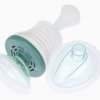
”Livräddande” luftvägsrensare får marknadsförbud
En luftvägsrensare som marknadsförs som potentiellt livräddande har belagts med med marknadsförbud av Läkemedelsverket. Orsaken är att det saknas belägg för att produkten kan användas på ett säkert sätt.
-

Chat GPT mer empatisk än läkare enligt studie
Chat GPT har inte bara större precision när det kommer till patientfrågor – chattboten uppfattas dessutom som nästan tio gånger mer empatisk än riktiga läkare, enligt en ny studie.
-

Devyser fick Swecares exportpris: "Fantastisk tillväxtresa"
Diagnostik- och gentestbolaget Devyser är vinnare av årets Swecare Export Award för att ha "satt svensk innovation inom hälsa och sjukvård på världskartan". Priset som ”rising star” gick till sepsisbolaget Algodx.
-

New report: Fewer PhDs in life sciences
A new report from Vinnova suggests that competency returns in the life science sector are declining.
-

Confidence in childhood vaccines is in decline worldwide
Since the pandemic, confidence in vaccinating children has plummeted. In a new report, UNICEF urges world leaders to act before the situation worsens. In 52 out of 55 countries surveyed, public perception of the importance of vaccinating children has
-

Vd-byte på Klifo
Danska CRO-bolaget Klifo har utsett Rasmus Nelund till ny vd. Han ersätter Alejandra Mørk, som har lett företaget i 15 år men nu väljer att fortsätta i en ny roll som Senior Client Advisor och styrelseledamot.
-

Uncertainty about the government’s life science work
The government’s national coordinator for life science, Jenni Nordborg, left her position almost four months ago. No one has yet succeeded her, and now questions are being raised both about the government’s plans for the office and the Swedish life science strategy.
-

Pfizer’s record year – topped the $100 billion mark
In 2022 Pfizer, as the first pharmaceutical company in history, reached an annual revenue of more than 100 billion dollars, thereby surpassing Johnson & Johnson as the industry’s top selling business.